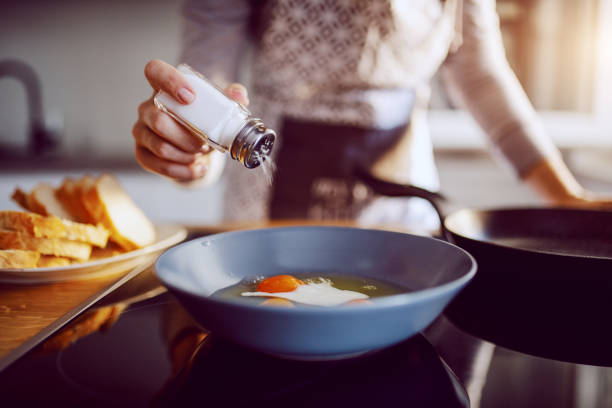
7 Cooking mistakes Nigerians commonly make and how to fix them

Cooking is an art that requires attention to detail, but even seasoned cooks can slip up occasionally.
These errors, though common, can be easily avoided with the right knowledge and approach. Whether you’re a busy professional trying to whip up dinner or a food enthusiast perfecting your favourite recipes, understanding these cooking pitfalls and how to correct them can make all the difference.
This article explores seven common cooking mistakes many Nigerians make and provides practical solutions to help you avoid them.
1. Overcooking vegetables
Nigerians love vegetable-rich dishes like egusi and edikaikong, but overcooking greens can rob them of nutrients and their vibrant colour.

Fix: Cook leafy greens briefly, just enough to soften them without making them mushy. Add them towards the end of cooking and simmer for a few minutes.
2. Using too much oil
Many Nigerian dishes, like stew and jollof rice, require oil, but excess oil can make the food greasy and unhealthy.
Fix: Measure your oil before adding it. For health-conscious cooking, you can skim off excess oil after cooking or use non-stick cookware to reduce oil usage.
3. Oversalting food
Too much salt can overpower flavours and ruin a meal.

Fix: If you oversalt, add a starchy ingredient like potatoes or extra vegetables to absorb the salt. Alternatively, dilute the dish with water or stock to balance the flavours.
4. Overcooking rice
Overcooked rice often turns mushy, ruining dishes like fried rice. This happens when too much water is added or when rice is left on the heat for too long.

Fix: Use the right water-to-rice ratio (typically 2:1 for white rice) and monitor it closely while cooking. For fried rice, undercook slightly to maintain a firm texture while frying.
5. Not measuring ingredients
Eyeballing ingredients is common but can lead to inconsistent flavours.

Fix: Invest in measuring spoons and cups. While traditional methods are fine, precision ensures your recipes taste consistent every time.
6. Multitasking while cooking
With the fast pace of modern life, it’s tempting to multitask while cooking, but this often results in burnt food.
Fix: Dedicate your full attention to cooking. Use timers to keep track of cooking times, especially for frying or boiling dishes.-
7. Skipping prepping time
Many skip proper preparation like washing rice thoroughly or cutting ingredients uniformly, which affects the final dish.
Fix: Take the time to prepare ingredients properly. For example, rinse rice several times to remove excess starch, ensuring fluffy and separate grains.
Cooking mistakes happen to everyone, but with these tips, you can elevate your culinary game and serve delicious, well-prepared meals every time. Nigerian cuisine balances flavours and textures; small changes can make a big difference in your dishes.
So, next time you're cooking jollof rice or Efo riro, remember these fixes and enjoy the smiles on your diners' faces. Happy cooking!
Disclaimer: The information contained in this content is for general purpose only and is generated from different sources other than MenBills Colony. Kindly report any fake news or false statement to support@menbills.com.ng








Samuel4
on ‘My wife was pregnant for another man inside marriage’
27-09-2024 04:43:01am
Ishiro
on ‘My wife was pregnant for another man inside marriage’
23-06-2024 11:38:24am
Ishiro
on ‘My wife was pregnant for another man inside marriage’
23-06-2024 11:38:14am
Oladunni
on ‘My wife was pregnant for another man inside marriage’
22-06-2024 04:19:58pm
Candy100
on Man who made allegations against E-Money and late Junior Pope’s wife publicly apologizes
22-06-2024 08:02:49am
Candy100
on BREAKING: Kano Govt Makes Fresh Announcement Over Emir Sanusi Amid Tussle In Kano
21-06-2024 08:15:39pm
Candy100
on 2027: Obi gives condition for merger with PDP
21-06-2024 08:10:14pm
Candy100
on Hajj: Last set of FCT pilgrims to report at camp today
21-06-2024 08:09:27pm
Shakeerah
on BREAKING: Kano Govt Makes Fresh Announcement Over Emir Sanusi Amid Tussle In Kano
21-06-2024 08:40:05am